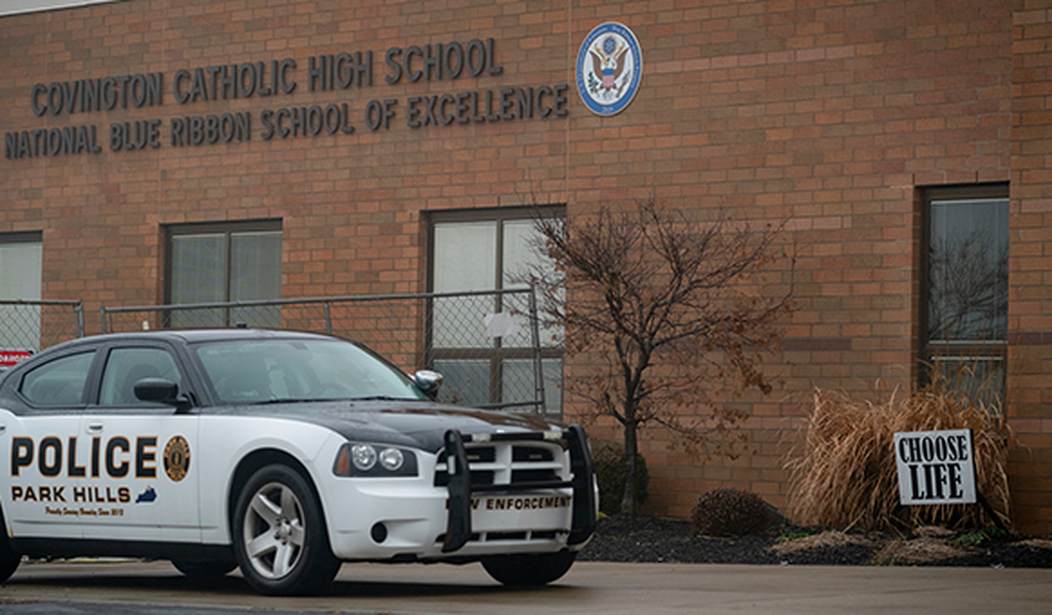Goodhue is a small city in Minnesota, roughly halfway between Minneapolis and Rochester. Calling it a “city” is a bit of a stretch, since its population barely tops 1,000. But Goodhue now has a problem that is becoming far too common, particularly in blue states around the country. Last month, after a couple of years of wrangling over budgets and administrative logjams, the town’s police chief and its few remaining officers quit, leaving Goodhue without a police force. So what happens now? That’s a question that more and more municipalities are grappling with today and it’s happening when crime rates around the country continue to rise. (Associated Press)
As Goodhue Police Chief Josh Smith struggled this summer to fill vacancies in his small department, he warned the town’s City Council that unless pay and benefits improved, finding new officers would never happen.
When nothing changed, Smith quit. So did his few remaining officers, leading the Minnesota town of 1,300 residents to shutter its police force in late August.
America is in the midst of a police officer shortage that many in law enforcement blame on the two-fold morale hit of 2020 — the coronavirus pandemic and criticism of police that boiled over with the murder of George Floyd by a police officer. From Minnesota to Maine, Ohio to Texas, small towns unable to fill jobs are eliminating their police departments and turning over police work to their county sheriff, a neighboring town or state police.
Goodhue didn’t suddenly turn into the Wild West overnight. Or at least not yet. There isn’t a complete vacuum of law enforcement in the area. Responsibility is shifting to the County Sheriff’s office and the state police, so 911 calls are still allegedly being answered. But the burden is being increasingly spread around. The town of Morris, Minnesota similarly disbanded its police department last year.
Having the county and the state help out is good, but it’s really not the same. When a call comes in, response times will be longer on average because officers will usually be coming from further away. Also, county and state officials lack the intimate knowledge of the local crime scene that the regular police possess. They don’t know who the usual troublemakers are or which households have reported domestic violence in the past. They are frequently coming in cold and starting from scratch if there’s been a serious crime that needs to be investigated.
The lack of a regular, local police presence can also change the overall mood on the streets. You’re probably going to get vigilantes if there is an uptick in local crime rates with no police around to monitor the situation. And there’s no reason to disregard the possibility of such an uptick. People behave differently when there are uniformed cops strolling the streets and patrol cars silently making the rounds. People who might otherwise consider running wild tend to display better behavior.
Goodhue isn’t alone in this, by the way. At least a dozen other towns and cities with populations ranging from 1,000 to 200,000 have shuttered their police forces in just the past two years. And they are almost all in blue states. Are you detecting a pattern yet? The blue states were where you saw most (though not all) of the “defund the police” activity during the 2020 Summer of Love and beyond. Morale has steadily fallen among cops who began to feel as if they were the ones being blamed for society’s problems and not the criminals who were causing all of the trouble.
The results have been as obvious as they were predictable. Look around at the crime rates rising across the nation. This is what you get when you have fewer police and cops who are hesitant to step up out of fear that they’ll be the ones who are dragged into a court if a criminal forces them into a violent confrontation. It’s yet another example of an old saying that’s been with us for a long time. Be careful what you wish for. You just might get it.







Join the conversation as a VIP Member